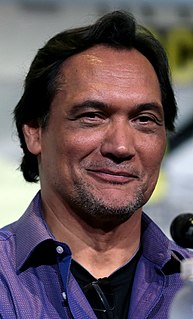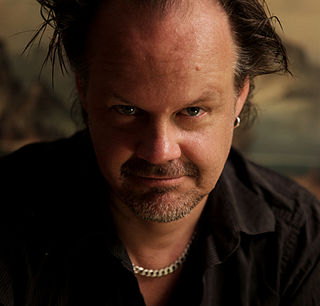A Quote by Mary Ellen Mark
I'm just interested in people on the edges. I feel an affinity for people who haven't had the best breaks in society. I'm always on their side. I find them more human, maybe. What I want to do more than anything is acknowledge their existence.
Related Quotes
Nothing is more debilitating than to care about something you can't do anything about. And you can't do anything about your adult children. You can want better for them, and maybe even begin to provide something for them, but in the long run, you cannot do anything about someone else's vibration other than hold them in the best light you can, mentally, and then project that to them. And sometimes, distance makes that much more possible than being up close to them.
But, more than anything, in the more than three years of this Government's existence, the Israeli people has proven that it is possible to make peace, that peace opens the door to a better economy and society; that peace is not just a prayer. Peace is first of all in our prayers, but it is also the aspiration of the Jewish people, a genuine aspiration for peace.
I have always been interested in mythology and history. The more I read, the more I realized that there have always been people at the edges of history that we know very little about. I wanted to use them in a story and bring them back into the public's consciousness. Similarly with mythology: everyone knows some of the Greek or Roman legends, and maybe some of the Egyptian or Norse stories too, but what about the other great mythologies: the Celtic, Chinese, Native American?
He was one of those people who made you feel like they either didn't know or didn't care that you were in the room and if they ever did acknowledge your existence it was bizarrely score one to you, and twenty years later they'd tell you they'd always had a crush on you but never had the courage to say anything and you'd tell them, What? I didn't even think you liked me? and they'd say, Are you crazy? I just never knew what to say!
People don't walk around thinking of themselves as bad people. You're part of the environment that you grow up in, and there can be decency in that. I always try to find a little glimmer of that, in anything that I do, because you can find places where there's humor or lightness in something that's deep and profound, and that tends to resonate more and make people more human. As an actor and performer, I think it resonates more with the audience when you do have the payoff.
People really don't like to hear success explained away as luck — especially successful people. As they age, and succeed, people feel their success was somehow inevitable. They don't want to acknowledge the role played by accident in their lives. There is a reason for this: the world does not want to acknowledge it either. If you use better data, you can find better values; there are always market inefficiencies to exploit, and so on. But it has a broader and less practical message: don't be deceived by life's outcomes. Life's outcomes, while not entirely random, have a huge amount of luck baked into them. Above all, recognize that if you have had success, you have also had luck — and with luck comes obligation.
There is nothing more dangerous than to build a society with a large segment of people in that society who feel that they have no stake in it; who feel that that have nothing to lose. People who have stake in their society, protect that society, but when they don't have it, they unconsciously want to destroy it.
I certainly play people on the edge quite a lot. I am interested in what makes people odd and what makes them different. In life I try to play the edges. I have a horror of the herd. There are many, many different sorts of people. A lot of people are fairly uninteresting. I want to play the interesting ones. The villains are always more interesting to portray. Shakespeare knew that.
Obviously, there's all sorts of life happening all around us, but on a human level, I'm just interested in people making informed decisions. You know, increasing their awareness. And also, trying to encourage people to be more fascinated with information and science and knowledge of all sorts, instead of, you know, it's a generalization, but the encouragement by society, the reflections that society gives us, which is media, television, art - anything, really.
Sometimes I am more interested in the richness of the material with all the stuff we've done which all tell a story to me rather than any single film career I could have, because I really do find myself interested in other people's ideas. I just want to be responsible with an array of things that engage me and feel vital, opposed to the corporate media out there that is just about making the loudest noises possible.
I'm more interested in talking about what I do. And I don't think people are interested in my personal life. I've never had a Hollywood life. I've always been a worker. But it's true: If you know something about a person outside of the movie that is really repulsive to you, it's hard to shake. So I prefer to do my speaking through the work. I don't want people to know anything about me, because that's not important. I'm more interested in the me that takes shape through these characters. The other stuff is personal and too easy to trivialize out of context.
The best way to establish rapport with people and to win them over to your side is to be truly interested in them, to listen with the intention of really learning about them. When the person feels that you are really interested in getting to know them and their feelings, they will open up to you and share their true feelings with you much more quickly.



































